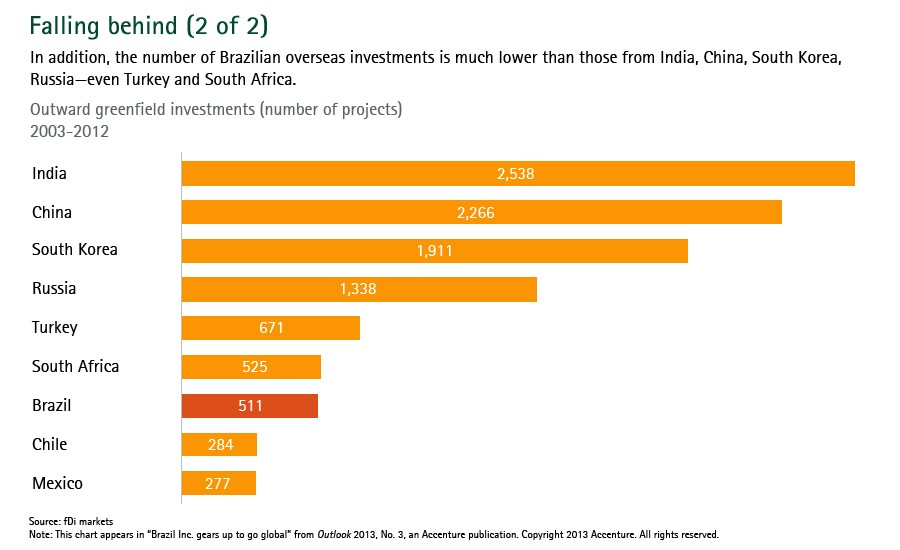BRIC Investments Falling
Post on: 18 Октябрь, 2015 No Comment

A few years ago, investing in a BRIC market — Brazil, Russia, India, or China — seemed like a can’t-lose investment: high returns, surprisingly low risks. Even many half-sensible projects did well.
But now the BRICs seem to be going soft. Residential projects are sinking in Brazil. Russia is suffering declines across all property types, and India and China, too, have had reverses.
Ironically, for all the fear of emerging market risks, the problems BRICs face may have less to do with local economies than shockwaves from Wall Street. Even in Russia, most damage seems to be paralysis brought on by the credit crunch.
Look homeward, angel
In India, foreign investors “fled the scene as quickly as they came in, or maybe even faster because obviously situations were getting tough back home,” says Abishek Gupta, head of research for Jones Lang LaSalle in India.
“There’s a mass domestication of equity,” says Tom Devonshire-Griffin, national director of capital markets for Jones Lang LaSalle in Russia. Between $90 billion and $125 billion in equity has left Russia in the last six months, much of it replanted back in its home countries.
Yet the BRIC macroeconomic fundamentals aren’t too bad. The International Monetary Fund forecasts that the economies of China and India will grow more than 5% this year, and Brazil will grow 1.5%. Although Russia is scheduled to finish down 2%, Devonshire-Griffin notes that the government still has enough cash in reserve to pay off its entire national and corporate debt, with cash to spare.
In fact, systemic risks may actually be lower in BRICville. Sam Chandan, chief economist of the research firm Real Estate Economics, points out that the BRICs don’t face the kind of major restructuring of their financial systems now roiling the U.S. and U.K.
Although yields on quality space in Moscow are above 12%, it takes a brave buyer to close such a deal. “People are fighting for their jobs,” Devonshire-Griffin says. No matter how good a BRIC deal looks, if something does go wrong, the perceived occupational risk is higher.
To be fair, many analysts argue that the BRICs are in for more pain. “The growth potential is still there medium to long term, but the next three to five years will be very difficult,” says Peter Hobbs, head of Global Research for the RREEF Alternative Investments division of Deutsche Bank.
For the brave, however, there are already opportunities:
Russian and Brazilian logistics: Russian consumers constitute a huge market. Jones Lang LaSalle points out that they now drink more beer than the Germans. But there aren’t nearly enough warehouses to get all that beer across Russia’s 11 time zones. The same is true in Brazil, where companies haven’t learned yet about the advantages of outsourced logistics, according to Thomas Govier, investment director of Occupantes, Brazil’s largest tenant rep company.
Chinese apartments: In China, residential sales have risen steadily since January, notes PingYing Wang of Invesco’s AIM Global Real Estate Fund, but Hong Kong-listed developers now operating in China are still cheap. One major Invesco holding, Hang Lung Properties, is now selling at a third of its 52-week high.
Indian retail: Most Indians still shop at corner grocery stores, but not for long. Business Monitor International, an economic research firm, forecasts 623% growth of hypermarkets such as French giant Carrefour between now and 2013.
Wen Jiabao talks…
As risky as these plays sound, staying home may well be risky, too. Investors still joke that when America gets the sniffles, the world catches cold. Today, however, the disease vectors are getting more complicated.
Even as Westerners bring their money home, the East could do likewise. In March, the oft-diplomatic president of China, Premier Wen Jiabao, said he was concerned about the safety of China’s nearly $1 trillion in U.S. investments.
“No country is in isolation,” says Gupta. “We’re in a flat world now.”
Bennett Voyles is a veteran commercial real estate reporter and NREI’s Paris correspondent. For questions or comments, readers can e-mail him at benvoyles@yahoo.com .














